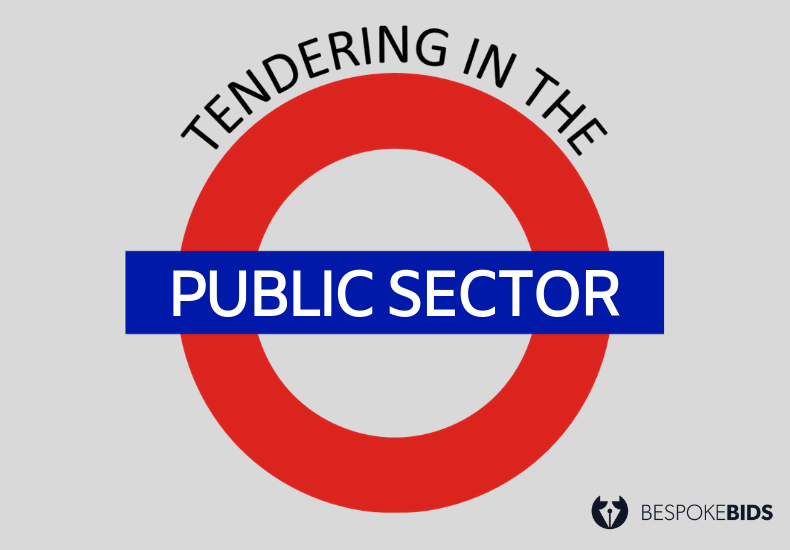
Tendering for public sector contracts in the UK is quite a formal process and should be carried out in accordance with the rules set down in the Public Procurement Regulations 2015.
In essence, the regulations have been produced with the object of ensuring fairness, openness and accountability. The regulations also aim to offer a degree of uniformity into the process, as well as to ensure the provision of a level playing field for all tenderers.
The process generally involves 2 stages for the selection of a contractor to provide goods, works and/or services. These are:
- Selection Questionnaire Stage
- Tender Stage
Selection Questionnaire Stage
The issue of the regulations also saw the introduction of the Standard Selection Questionnaire which all public sector bodies should be using for the first stage of their selection. This is essentially a questionnaire to establish certain factual information about your business which is then used to select companies for progression to the tender stage.

It has become increasingly common for the SSQ stage to be combined with the tender stage. This means that Procurement issue an SSQ and a set of tender stage questions together which must be completed and submitted at the same time.
Tender Stage
This will usually involve responding to a set of questions. Common themes in public tenders include:
- How you will provide the services/goods required
- Your quality, health and safety and environmental management systems
- Your approach to customer service
- Any innovations you might bring to the table
- Cost effectiveness/cost savings
- Added value
- Social value
Pricing

Obviously, pricing will also be part of this stage and there may be a schedule to complete. Alternatively, they may ask you to simply provide your own pricing schedule.
Social Value
The Social Value Act compels public authorities to consider how their procurement activities might benefit the areas they oversee. Increasingly, many are paying more attention to this in their tender questions.
Evaluation
Whether they have chosen a 1 or 2 stage process, the procurement team will still carry out an evaluation of the SSQ first. Only those who pass this stage will then have their tender responses evaluated.
Announcement of Decision
Once a selection has been made, the client has to follow certain rules regarding the announcement. They should tell you:
- Who won.
- Details of your scores and the evaluation of your tender.
- The details of the standstill period (where this applies).
- How you may obtain more detailed feedback on the decision.

You should always read the announcement letter and if it does not contain the information above (especially if the missing items are your own score and evaluation), ask them to provide whatever is missing as soon as possible.
Challenging Decisions
A formal challenge to a decision on a tender usually involves a court case and is therefore realistically out of the question for all but the highest profile contracts. There are however, other ways in which you can challenge the buyer on their selection.
One way to do this is by commenting on their evaluation and ask for their response to your comments. It is important that your comments are reasonable and factually based. For example, the evaluation may state that you did not provide some particular information in a response when it is quite clearly present. Conversely, you may not have provided it because it was not asked for. Or an evaluator’s comments may have been mixed up and placed against the wrong question in the document you receive.
“Challenging” this way can work. It is less formal (and less expensive), and certainly not as intimidating. Evaluators are only human and mistakes/errors of judgement are made no matter how good the process may be. By doing it this way, the buyer may be less likely to feel the need to dig their heels in over their decision.
Communication Protocols
Rules about client communication form some of the key aspects of modern public sector tendering. More and more public procurement is being carried out using online portals, which generally include messaging facilities which you must use.
If they are conducting the procurement without a portal, there will probably be an email address to send your queries to.
Always check if there is a deadline for asking clarifications. If there is, you need to read the documentation and get your questions in as soon as possible. This is especially important for issues with pricing schedules or if information is missing or incorrect. Though not obliged to, some public sector bodies may continue to answer questions after the deadline.
It is vital that you follow the instructions for communication. The primary reason for this is to ensure fair treatment of all tenderers. All questions and responses should be published on the portal so that all may have access to the information provided.
PAS 91

PAS 91 is a form of SQ developed specifically for the construction industry by the British Standards Institute (BSI). It is more detailed than the SSQ and you may find that when procuring construction projects some public bodies may ask you if you have completed one of these or may indeed incorporate some of the PAS 91 questions into the SSQ Additional Questions section.
Utilities and Defence Procurement
If you are tendering for contracts in these areas you may find variations in the process due to other legislative exemptions/requirements.
Summary

The key things to remember about public sector tendering are:
- It is a very formal process designed to ensure fairness and even-handedness.
- Both you and procurement must follow the rules.
- Follow instructions and read documents carefully.
- Common themes are cost, value for money, social value, providing good customer service to all.
- Don’t promise what you cannot or will not provide.
- Read the outcome letter and information about scores and evaluation carefully.
- If you do consider that you have been unfairly assessed then say so.
Did you enjoy this post?
Click here to learn 7 ways to lose a tender.
Follow Bespoke Bids on Linkedin to keep up with our day-to-day operations. We post live tenders, tips and tricks and more.


